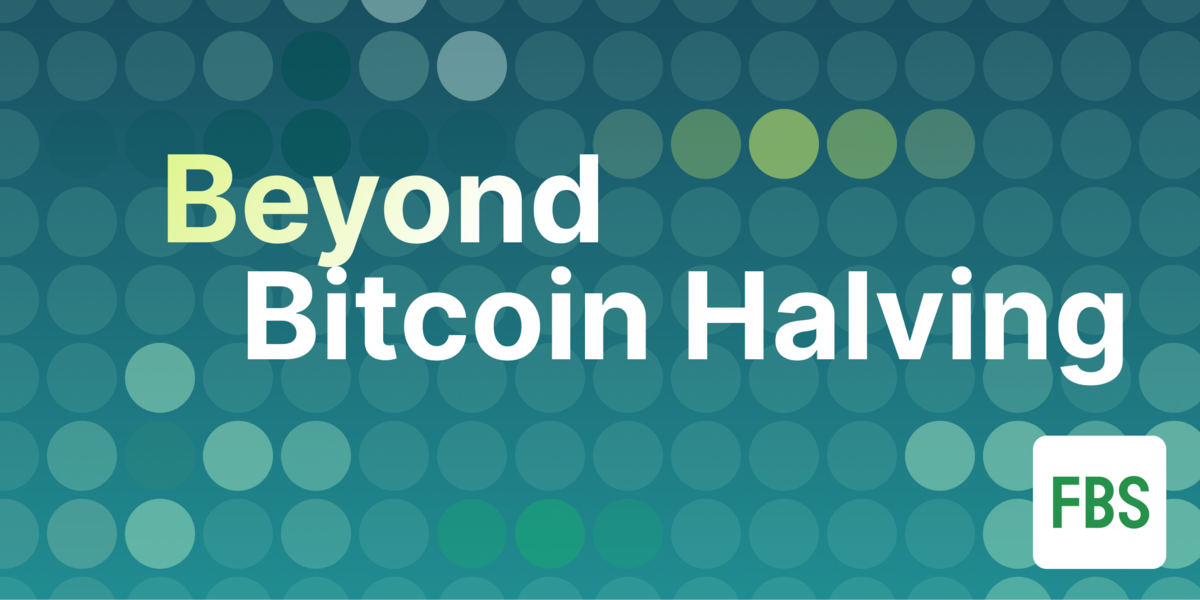Key Takeaways
-
A hot wallet is always connected to the internet; hence it's prone to online attacks – but it's more convenient for daily use.
-
A cold wallet is mostly not connected to the internet; hence, it's less prone to online attacks – but it's less convenient for regular use.
-
When choosing a wallet, you should consider the security, convenience, fees, supported coins, and insurance factors.

If you are planning to buy digital assets, deciding how and where to store them is not an option, it's a necessity. Unlike fiat currencies, cryptocurrencies live on the blockchain and require a proper storage platform known as a wallet. These wallets give you access to your crypto holdings through public and private keys.
You use a public key to send and receive cryptocurrencies and a private key to confirm transactions and prove ownership of a crypto wallet. You can think of your public key as your bank account number and your private key as your pin. The main difference between hot vs. cold wallets is that the former stores private keys online while the latter stores them offline.
This article takes a deep dive into the hot and cold wallet debate, considerations when choosing a wallet, and using both hot and cold wallets to manage your crypto portfolio.
What is a Hot Wallet?
A hot wallet is a software wallet that stores public and private keys online. You can access it through your computer or smartphone when connected to the internet. Hot wallets are more convenient for daily use as you don't have to plug them in and out to use them – you just need an internet connection. They are also typically free to download and use, complete with a user-friendly interface that makes it easy for anyone to get started.
Hot wallets are vulnerable to attacks because they store public and private keys online, which exposes you to risks like phishing and other scams.
Types of Hot Wallets
There are two types of hot wallets – exchange-based, where a user opens an account with a centralized exchange that acts as the custodian of the users’ funds in their care, and non-custodial software hot wallets.
Exchange-Based Wallets
Exchange-based wallets are part of a centralized exchange. Centralized exchanges are custodial institutions that hold the private keys to their users’ addresses. This means that customers of such custodial financial platforms are not in total custody of their assets, as these are deposited into hot and cold wallets held by the institution.
Unfortunately, this exposes users to the risk of the exchange engaging in certain activities that result in the loss of customers’ funds, as seen in the case of FTX in November 2022. Moving forward, there is an industry wide push for more transparency and to hold custodial institutions accountable for their customers’ tokens with the introduction of Proof of Reserves.
While there is an overall drop in centralized exchange activity, exchange-based wallets are still popular, especially with retail investors, as they make it easy for users to buy and sell cryptocurrency with fiat money. Also, in the event you lose your log-in details, access to your wallet can be restored by contacting the exchange’s customer service.
Non-Custodial Software Hot Wallets
Non-custodial software hot wallets can be accessed through mobile, browser or desktop applications.. Most of the time, they’re available across all three. In the case of these hot wallets, users are responsible for their own private keys and have full control over their funds. While this means your funds are safe in the event of a bank run, as they’re not stored in a custodial institution, if you lose your seed phrase, you will no longer be able to access your wallet and the crypto stored within.
What is a Seed Phrase?
A seed phrase is also known as a recovery phrase. This is a random list of 12, 18, or 24 words that can be used as a master key to recover crypto assets on-chain. Seed phrases generate the private key, which in turn are used to generate the public key. Wallet software typically generates a seed phrase, instructing the user to write it down before storing it safely. The seed phrase acts as a master key to unlock the user’s access to their wallet, so it must be stored safely and never online.
When it comes to storing your seed phrase, don’t just write it on a piece of paper, which will fade over time or possibly be destroyed by water and fire. Instead, use crypto steel to record your seed phrase, and make multiple copies as backup.
Never store your seed phrase on a password manager or anywhere online or on your devices. That includes not taking a photo of it, or putting it in a google doc or note.

Examples of Hot Wallets
MetaMask – Best for Exploring the Ethereum Ecosystem
MetaMask is one of the most popular hot wallets in the crypto space and supports all EVM-compatible tokens. It's easy to use and is available on desktop and mobile devices. Besides, it has extra in-built features for swapping, sending, and receiving crypto and collecting non-fungible tokens (NFTs) across networks.
Exchange-Based Wallets – Easy Fiat On-Ramp
Exchange-based hot wallets are similar to MetaMask, mostly supporting desktop and mobile devices. Exchange-based wallets connect to most banks to ensure easy onboarding, allowing new crypto users to directly buy crypto using their bank accounts instead of brokers. You may (or may not) have to open an account with the exchange to use their wallet services.
However, as mentioned above, these exchange-based wallets are custodial, which means the exchange essentially holds your private key and your coins, promising you that you’ll be able to withdraw your coins when you want to.
Exodus – Best for Desktop
Exodus is the best hot wallet for desktops due to its high transaction speed, ease of use, and diverse client functionalities it provides. It's one of the most visually appealing and intuitive wallets in the crypto space. It started as a desktop-only wallet but has expanded to support mobile devices. However, the Exodus desktop app for Windows, Linux, and Mac operating systems, is still the wallet's primary offering.
What is a Cold Wallet?
A cold or hardware wallet is a physical device that stores your private keys offline, costing anywhere between $50 and $250. Cold wallets are the most secure type of crypto wallet, as they are not connected to the internet and are therefore unlikely to be compromised by hackers (unless they have access to your private keys AND the hardware wallet).
Hardware wallets are physical devices that may resemble a USB stick or hard drives, which work by storing your pass codes, PINs and private keys on the device itself. In fact, even if the computer is infected with malware, the cold wallet remains safe as its private keys are held in a chip that never connects to the internet. So even if your computer is hacked or your online wallet is compromised, your coins will still be safe… unless your passcode and device are stolen.
However, as cold wallets are physical objects, that also opens them up to the risk of loss through careless handling. In the unfortunate event that your crypto hardware wallet is lost or stolen, you can use your seed phrase to regenerate your private keys. So remember to keep your seed phrases safe, offline, and on hard copy.
As cold wallets are ideal for long-term crypto storage, they’re better suited for hodling crypto than trading funds.
Ledger
Source: Ledger Nano X
Ledger is one of the most popular crypto hardware wallet providers, offering the Ledger Nano X, Ledger Nano S and the Ledger Nano S plus wallets. These devices are about the size of a thumb drive, running on the Ledger operating system called the Blockchain Open Ledger Operating System. It also has an in-built clear OLED display screen interface, and two navigation buttons for confirming transactions.
Ledger comes complete with a Ledger Live mobile app and a high level of security with its secure element chip used to store cryptographic data. Their flagship model, the Ledger Nano X, offers cryptocurrency compatibility of more than 5,500 tokens.
Trezor
Trezor is another well-known hardware wallet that offers the Trezor One and Trezor Model T. The Trezor Model T offers compatibility with 1,456 coins and tokens, and comes with the desktop, browser and Android Trezor Suite.
Trezor Suite is a user interface which lets you search and buy cryptocurrencies, manage your holdings, and send crypto securely. While this improves the user experience, there is the potential to introduce security vulnerabilities as you are using internet-enabled devices.
Considerations When Choosing a Wallet
Depending on your needs, you may opt for a hot wallet, a cold wallet, or both. We’ve summed up how the three types of wallets covered above compare against each other in this table:
Security
Security is a core feature when choosing a crypto wallet. Blockchain technology is known for its secure and immutable nature; ensuring your wallet has the best security features is necessary. Cold wallets are more secure than hot wallets since they are not always connected to the internet with exposure to potential cybersecurity risks like phishing or other hacks and scams. Besides, ensure your wallet has two-factor authentication (2FA) functionality to prevent unauthorized access to your assets.
Convenience
Since cold wallets store private keys offline, they involve plugging in physical devices and linking to web-based accounts to transfer funds. On the other hand, hot wallets live online; hence they are much easier to use for everyday transactions, like day trading.
Additional Transaction Fees
You’ll be still subjected to gas fees, regardless of whichever wallet you’re using. However, exchange-based wallets may include an additional charge that is derived from gas prices, although this fee may be waived if you are holding or staking the exchange’s native token. Before downloading or purchasing any wallet, check their service charges first.
Supported Coins
The wallet you plan to use may not support the coin you want to invest in. Some wallets support only one coin! Consider Mycelium, for instance. Despite having exceptional functionalities, it only supports Bitcoin. Therefore, be sure to check the wallet’s list of supported coins and tokensbefore using it to avoid disappointments.
Insurance
Some custodians provide asset insurance for users who incur losses through a technical problem or theft. Custodians differ in insurance policies, but selecting one that insures your assets in collaboration with a financial institution is advisable. For example, Binance provides insurance for USD deposits of up to $250,000 for U.S. customers. It has partnered with the Federal Deposit Insurance Corporation (FDIC) to implement this policy.
Using Hot and Cold Wallets to Manage Your Crypto Portfolio
Hot wallets are more convenient for daily use than cold wallets. On the other hand, cold wallets guarantee maximum security than hot wallets. Both wallets support a broad range of cryptocurrencies. Therefore, the ideal wallet for you relies on whether you prioritize the safety of your funds over the convenience of using a wallet regularly.
You can enjoy both benefits by combining both methods. For instance, you can hold a small percentage of funds in a hot wallet for trading purposes and keep the rest of your funds in a cold wallet as a long-term investment.
Finally, remember - not your keys, not your coins!

Josiah is a tech evangelist passionate about helping the world understand Blockchain, Crypto, NFT, DeFi, Tokenization, Fintech, and Web3 concepts. His hobbies are listening to music and playing football. Follow the author on Twitter @TechWriting001






 Or check it out in the app stores
Or check it out in the app stores
